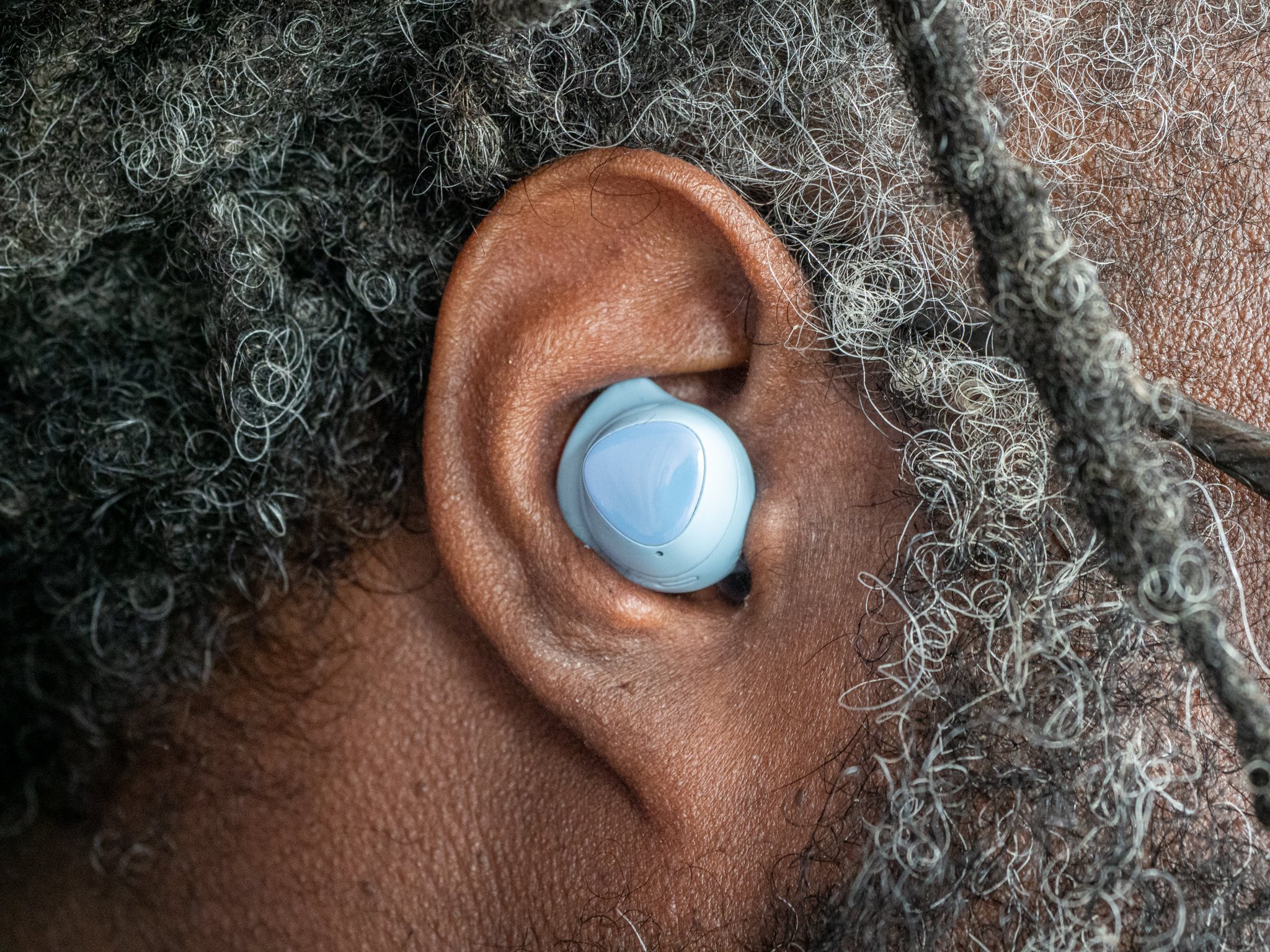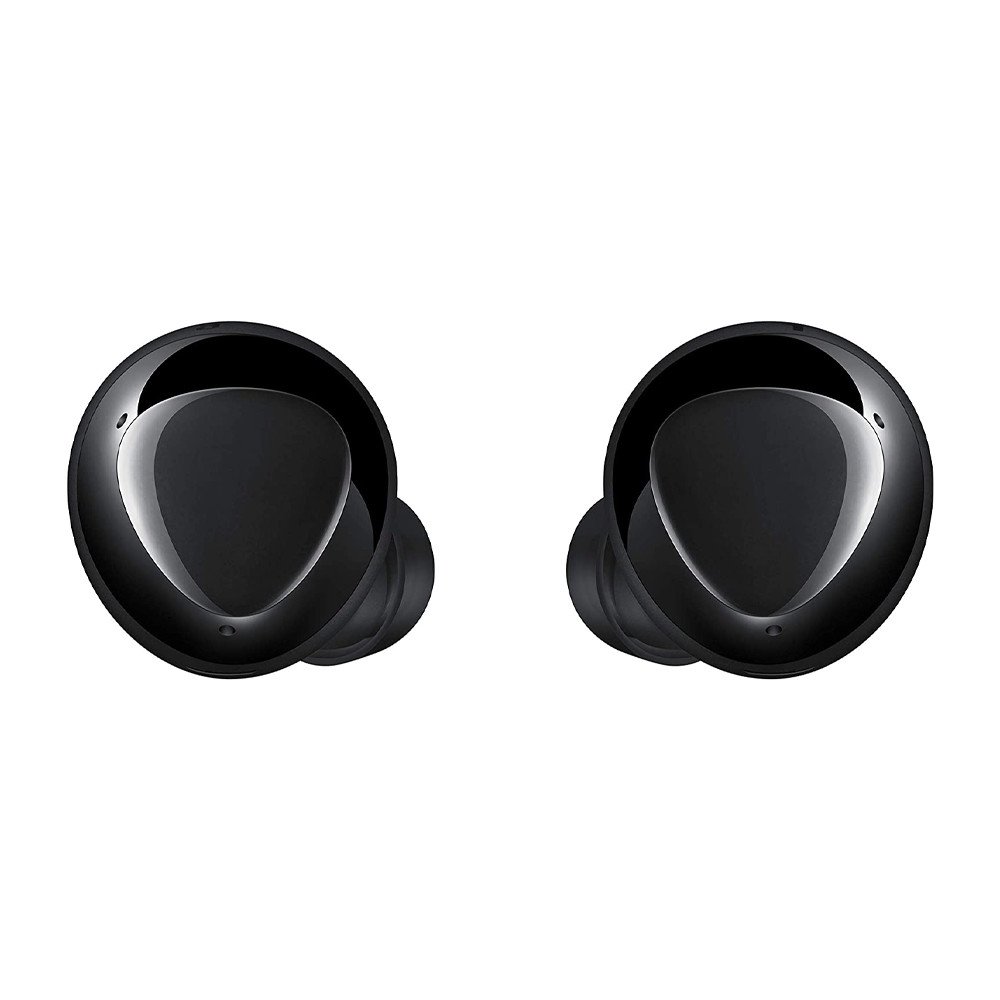- Get link
- X
- Other Apps
- Get link
- X
- Other Apps
Doing it again
Google Pixel Buds A-Series
Pros
- Same sound quality for less
- Integration with Android and Google Assistant
- Lightweight build and comfy fit
- Same size case
- Fast charging
Cons
- No swipe gestures
- No wireless charging case
- No change in battery life
- Still no active noise cancelation
For an encore, Google didn't overhaul its Pixel Buds. It just tweaked them, gave them new coats of paint, and made them more affordable. To get there, the A-Series cut out a few things, but so much of the originals stay where they are, and that's why they're an intriguing choice among other earbuds.
Still around
Samsung Galaxy Buds+
$100 at Amazon $100 at Best Buy $100 at B&H
Pros
- Tried and true design
- Outstanding battery life
- Comfortable fit
- Lively color options
- Decent app support
Cons
- Touch controls can be finicky
- No ANC support
When Samsung finally got earbuds right, the Galaxy Buds+ were the pair that made that point clear. Big steps forward in battery life and audio quality played key roles in establishing them as not only viable earbuds worth wearing, but also reliable ones you can count on when you're on a budget.
These two earbuds came at different times and with different objectives, at least initially. The Pixel Buds A-Series are simply a variant of the same Pixel Buds, albeit with a focus on affordability. The Samsung Galaxy Buds+ were once the company's premium earbuds, but have since been replaced with newer models. They're still kicking around, though, and when pitted against another budget pair, they become interesting alternatives.
Google Pixel Buds A-Series vs. Samsung Galaxy Buds Plus: What sets them apart?
At first glance, the Galaxy Buds+ look like they come out ahead. They have longer battery life, a charging case supporting wireless charging, and more varied voice assistant support. There's more to that story, and part of it depends on what makes earbuds good for you when you wear them. For instance, the Buds+ are not durable, where even splashes of water might endanger them. The Pixel Buds A-Series aren't a huge step ahead, but they're less likely to suffer under the same conditions.
Google's earbuds are also easier to pair and maintain because of their tighter integration with Android. Those who appreciate quick pairing and access will like how the Pixel Buds A-Series work that way. But to get to a lower price, something had to go. In this case, Google cut out wireless charging, swipe gestures on the earbuds themselves, and longer lag when pausing audio once you remove one of the earbuds.
| Google Pixel Buds A-Series | Samsung Galaxy Buds+ | |
|---|---|---|
| Durability | IPX4 | IPX2 |
| Bud battery life | 5 hours | 11 hours |
| Case battery life | 24 hours | 22 hours |
| Wireless charging case | No | Yes |
| Connectivity | Bluetooth 5.0 | Bluetooth 5.0 |
| Digital assistant support | Google Assistant | Bixby, Google Assistant, Siri |
| Supported audio codecs | SBC, AAC | SBC, AAC |
| Speaker size | 6mm drivers | 6mm drivers |
| Active noise cancelation (ANC) | No | No |
| Ambient sound mode | Not exactly | Yes |
Samsung's earbuds are only in the budget category because they've since been supplanted by others bearing the company's logo and tech. When Samsung launched them in Feb. 2020, they were designed to compete against the best wireless earbuds at the time. Now, over a year later, they've dropped to the same price the newer Pixel Buds A-Series have started at.
Even today, 11 hours of battery life is superb for a pair of earbuds. True, the Galaxy Buds+ are missing battery-draining features, like active noise cancelation (ANC), but they have an ambient mode. The case can only offer one additional charge, so cumulatively, you pretty much get the same amount of listening time between these two. It's just different when you only have to recharge them once compared to over four times with the Pixel Buds.
Since neither pair has ANC to muffle background noises, passive isolation is your only retreat. The tighter the seal, the better the overall sound. Google has seen both praise and complaints about how the previous Pixel Buds fit, yet the A-Series is of the same mold. If you're in the camp that finds them to be a nice fit, you will likely have little to complain about because they feel feathery and efficient.
So do the Galaxy Buds+. These are among the most comfortable earbuds available, subjective as that may sound. Without ANC and larger drivers, Samsung could keep the frame smaller to accommodate a wider variety of ears. Their lightweight design lends itself well when listening for longer periods. Sure, you don't get the chance to truly drown out ambient noise around you, but that may not matter if the comfort is agreeable to you.
Unlike the Pixel Buds, the Galaxy Buds+ have some audio customization through the Galaxy Wearable app. Though limited to six equalizer presets, the variance is at least enough to alter the sound closer to your liking. Other than Bass Boost, Google's buds don't offer the same level of audio tweaking. They also don't have a dedicated ambient mode. The closest you get is Adaptive Sound mode, which increases or decreases volume based on how much background noise you're dealing with.
Since neither pair has ANC to muffle background noises; passive isolation is your only retreat.
Both offer auto-pause when you remove the earbuds, except it's more consistent with the A-Series. The Galaxy Buds+ tend to do it more when you remove both earbuds, rather than just one, as is the case with the A-Series. For call quality, Samsung had improved that greatly in the Buds+, whereas Google already had a good thing going with the Pixel Buds.
Google Pixel Buds A-Series vs. Samsung Galaxy Buds Plus: Keep talking
One of Google's selling points is that Google Assistant works so seamlessly with the Pixel Buds A-Series. Hands-free functionality that works purely by voice, without ever touching the phone. There's no doubt the convenience is attractive, especially if you use the voice assistant a lot. And that only gets better when it reads out incoming notifications, giving you less of a reason to reach for your phone when something new comes in.
Samsung promoted Bixby in much the same way with its Galaxy Buds+, but its own voice assistant continues to struggle to make a lasting impact. You can use Google Assistant as an alternative. Only you don't get the same level of integration. In that regard, they really aren't any different from other earbuds that can do the same thing.
Google Pixel Buds A-Series vs. Samsung Galaxy Buds Plus: Which one should you go with?
Part of your choice here may come down to ecosystem. If you own a Pixel phone, you might lean toward the Pixel Buds A-Series, whereas a Samsung phone might tilt you toward getting the Galaxy Buds+. Even so, that doesn't have to be the determining factor since you could use either pair with either type of phone. Unless aesthetics and comfort are more your concern. The Pixel Buds A-Series come in two colors: clearly white and dark olive. The Galaxy Buds+ come in black, white, blue, pink, red, and deep blue.
Either one of these could fall into the best cheap wireless earbuds category, but both have had their place among the best wireless earbuds as well. Given how close they are in so many ways, you probably won't go wrong either way, but chances are, newer features would come to the Pixel Buds A-Series first through firmware updates.
A-OK buds
Google Pixel Buds A-Series
The same Buds for less
Google's follow-up to its Pixel Buds trims a few features, leaving the most important elements intact for greater affordability.
On the Plus side
Samsung Galaxy Buds+
Still a plus
$100 at Amazon $100 at Best Buy $100 at B&H
They may not be as new, but they're far from old, which is why the Galaxy Buds+ still hold their own as solid earbuds.
by Ted Kritsonis
- Get link
- X
- Other Apps


